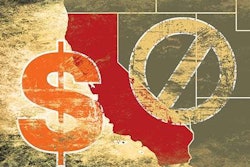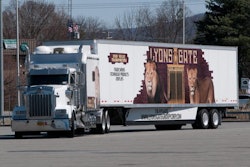 Dealing with personal pay has always been something of an elephant in the room for small business owners, who find ways to avoid dealing with it. How often have you had an experienced owner who tells you to pay yourself first? Too often, we don’t listen, rationalizing that hard driving and more miles, maybe the higher gross posted each week in our settlements, will make up income shortages that may occur.
Dealing with personal pay has always been something of an elephant in the room for small business owners, who find ways to avoid dealing with it. How often have you had an experienced owner who tells you to pay yourself first? Too often, we don’t listen, rationalizing that hard driving and more miles, maybe the higher gross posted each week in our settlements, will make up income shortages that may occur.
One owner’s experiences with planning shows us the potential role of payroll, even in a one-man, one-truck business.
Meet Steve Wheeler, 66, of Greenville, North Carolina. Steve’s history in trucking began 40 years ago. He spent time as a Teamster, and knows the stresses of changing companies. He had a front-row seat for the economic deregulation of trucking, watching his many options for employers being forced out by new start-ups. Today he's an owner-operator.
Outside of trucking, Steve and his wife, Christine, have contributed to their own IRAs and 401(k) retirement accounts and invested in vacation rental properties along the North Carolina coast. It's near where they live, so it's a business environment they understand .
Even with his long history in trucking, Steve’s first passion was accounting. Yes, Steve is a proud, self-described “bean counter,” so it's second nature for him to separately track the performance of his different investments. Steve was willing to share how he's structured his business and his personal payroll.

“Money is like a stream of water. When it flows, it will find the path of least resistance.” – Steve Wheeler
“My LLC files as an S Corp,” Steve said. That corporation “pays me $4,500 a month plus $1,300 a month in per-diem reimbursement. After taxes are withheld, the net is $3,574, plus $1,300.” That’s $4,874 in net pay per month. “Paychex is my payroll service, and they send all tax withheld to the feds, North Carolina and unemployment.”
He probably pays himself “too much,” he added, but given his real estate investments, he needs to be able to show solid W-2 income to qualify for mortgages. That net pay equates to $58,488 in after-tax income (almost $70K before tax, tracking closely to recent owner-operator averages). On top of that, “my truck profits another $30,000 to $45,000 per year,” he said.
Steve paid income taxes and Social Security/Medicare on an adjusted income of around $33,000 for the year for his salary. Plus, the truck profits are not subject to the 15.3% in self-employment tax (SS and Medicare), which saves him that percentage annually on his business’ income – equivalent to roughly $4,500 to $7,000.
Filing as an S Corp enables those tax savings, and the ways to structure your level of pay are varied. The consultants at ATBS have advised, though, that deflating how much the S Corp pays for the owner-operator’s salary in an outsize way to avoid taxes could be a shortsighted strategy if you plan to rely in part on Social Security in retirement. If you plan to structure the business this way to minimize taxes as much as you can, consider banking the tax savings in a retirement investment vehicle as Steve has done, though his salary is certainly in line with owner-operator averages.
ATBS President Todd Amen in past advised: “If you know you’re making better than average [income and the business is] well established, may want to establish an S Corp.”
The benefits of this treatment of payroll for oneself can play out in ways other than tax savings, too. It elevates your awareness and management of personal and business finances. More specifically, it helps you understand the true cost to haul freight, above which rates must be set to achieve profit. Deliberate financial choices, such as regularly paying yourself a reasonable amount, can act as subtle self-nudges that lead you to managing money better overall, controlling discretionary personal spending and placing roadblocks in the way of unwise habits.
Dealing with personal pay has always been something of an elephant in the room that small-business owners find ways to dodge. I’m sure you’ve heard that experienced owner who tells you to pay yourself first. It's easy not to listen, rationalizing that hard driving and more miles, maybe the higher grosses in our settlements, will make up any income shortages. You can always just catch up later, right?
As Steve says, like water, money will flow in the direction of least resistance. Without a W-2 payroll for yourself, how do you keep tabs on the amount of business operating capital you’re siphoning off for personal spending?
Too often, co-mingled personal and business bank accounts give a false impression of wealth and stability. Under the sway of that impression, it’s hard to resist spending.
There are many types of business structures owner-operators can adopt, whether sole proprietorship, limited liability company or S corporation. You are free to determine which structure may be your best option, but never assume you know for sure without discussing it with your tax preparer or business services provider. What's best for another owner isn’t necessarily your best option.
Part of being a business owner is doing what you do best and hiring professional services when needed. If you need payroll filing help, search for a reputable service. One good place to start may be your bank.
Two helpful links to IRS resources:
**Small Business and Self-Employed Tax Center










